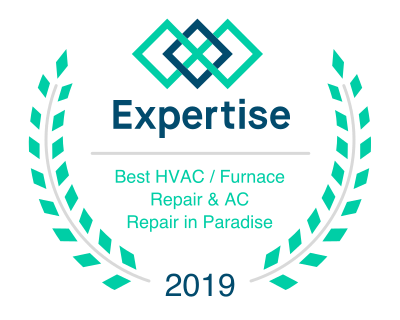An AC contractor that installs and maintains HVAC systems using thorough expertise and proven equipment can make mistakes just like any other firm, but these mistakes don’t just affect your air conditioning unit — they can also impact your ongoing utility bills, altering your thermostat’s temperature expectations, and quite possibly let you down. Their reliability, often entrusted upon by most adults, might come into question and more often than not, the root cause has much to do with inefficient service, ineffective communication, and lackadaisical maintenance procedures regarding critical parts of your hvac system such as the refrigerant and air conditioners.
Air Conditioner Company Warning Signs
You can’t be expected to know everything about air conditioning; that’s what you’re paying your AC contractor and their skilled technicians for. Nonetheless, your provider may be falling short in a number of ways, particularly when it comes to the right amount of attention to required repairs. See our comprehensive list of the most common failings of local HVAC companies, among them are missed inspections, disregarded order implementations, and overpricing, all contributing to customer dissatisfaction.
1. Failing to Understand Combustion Safety
The majority of HVAC companies, quite disappointingly, only change CO alarm batteries when they receive a call regarding carbon monoxide. They simply look for cracks on the heat exchanger of the furnace because they do not understand combustion safety, especially appliance combustion backdrafting and testing. This lack of a technician’s professionalism creates a likely dangerous situation at your customer’s house if you fail to test for flue gases and depressurize these calls.
You don’t want to be on the receiving end of a distress call about family poisoning because of CO after failing to understand and rectify a system’s root issue. Warranty and repair services promise assurance and yet, they are often overlooked leading to inefficiency and broken trust.
2. Overlooking Air Flow and Focusing on “the Box”
The fact that HVAC companies move from one house to another to find duct problems, revealing the existence of a ductopus, and the small nature of most duct systems are proof of the contractors lacking professional skills and failing to understand airflow. Whenever a system changeout is done, the duct needs to be changed as well.
This is due to the possibility of the existing ductwork being of the wrong size and leaky, leading to serious problems and expenses, despite the duct being new. Ensuring customer satisfaction warrants a close inspection of the ductwork as part of the offered service and not to let down the trust put onto you.
3. Neglecting to Identify Home Performance Opportunities
A heating and cooling company typically visits residential homes daily. As part of their service, they check out crawl spaces, attics, and basements for a home enclosure’s insulation and air sealing quality, providing recommendations based on their findings. Homeowners can enhance the performance of their cooling systems by considering air-sealing and insulation work.
The irony wears thin when companies that handle these systems do not address their comfort issues but have the word ‘comfort’ in their brand names. The fact remains, not all comfort-related problems can be handled by mechanical systems alone.
Related: How Insulation Saves You Money While Making You More Comfortable
4. Ignoring the Ventilation Aspect of HVAC Systems
Energy codes that call for top-notch air-sealing and verification of air-tightness using blower door tests can make modern homes tighter than before, hence their need for mechanical ventilation. Every bathroom and kitchen needs spot ventilation. Do not overlook the ventilation aspect of HVACs. Understanding the importance of ventilation, knowing ASHRAE 62.2, learning how to measure ventilation system airflow and remembering the three ways of offering mechanical ventilation: negative, balanced and positive pressure, is crucial to the trade.
HVAC companies need to evolve with time. Relying solely on experience and rules of thumb can be a recipe for failure as modern homes and heating and cooling systems are far more innovative than they were 5 decades ago. Unique homes and systems call for customised solutions. You can resort to manual J to determine the runtime of homes during design conditions.
5. Avoiding the Math
It’s not just about fixing issues but about providing efficient, tailor-made solutions. This is the best way you can enhance customer satisfaction by working on complex HVAC systems. Poor service, commonly seen in the form of low bids and hiring poorly trained technicians to work on the contracts without proper training, is a path to customer dissatisfaction.
Become a problem-solver by adopting the house-as-a-system thinking technique. Learn to listen to your customers’ needs to help fix the issues with HVAC systems. Include distribution, combustion safety, ventilation, and Building Science 101 rules to successfully solve problems with residential HVAC systems.
6. Opting for Short-Term Solutions That Ends Up Costing More Over Time
Improvements in these areas will mitigate the common mistakes, ensuring your heating and cooling company delivers on its promise of quality, professionalism, and reliability. Walk the path to increased profits, happier customers, more customer referrals, and of course, your personal peace of mind.
7. Ineffective Problem Solving
Call The Cooling Company today to discuss your HVAC needs. We guarantee transparent pricing, exceptional service, and utmost satisfaction in all services we render.
If you work on these mistakes that may be letting your heating and cooling company down, you will be walking the path to increased profits, more loyal and happier customers, more customer referrals and of course, your peace of mind.
Call The Cooling Company today to discuss your HVAC needs.












